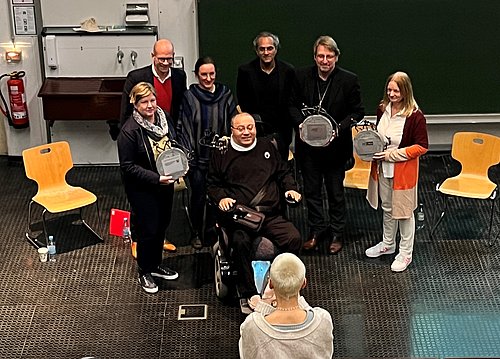What constitutes a society based on solidarity?
What characterizes a society based on solidarity?
An exciting and important topic, which Dr. Faraj Remmo conducted in cooperation with the Faculty of Education at Bielefeld University. Unfortunately, Prof. Dr. Ingo Ballschmieter, who was invited on behalf of the Open Innovation City project, had to cancel due to illness.
In the prominent panel, there was a strong request not to glorify the idea of solidarity and not to use it as a "feel-good" phrase that everyone uses as a marketing strategy. Just like diversity and inclusion, solidarity needs to be really looked at in depth and recognized that when we choose to be in solidarity, we are also consciously choosing to accept certain disadvantages in order to help others or to make up for their shortcomings. And not only when it can be marketed, but at any time in everyday life.
In addition, they all highlighted that we should consciously choose to be better people and support each other.
The guests were:
- Claudia Middendorf, State Government Commissioner for People with Disabilities and Patients in North Rhine- Westphalia (Düsseldorf).
- Ingo Nürnberger, Head of the Department for Social Affairs and Integration of the City of Bielefeld
- Professor Alexandra Kaasch, Prorector of Bielefeld University
- Professor Paul Mecheril, Faculty of Educational Science
- Professor Michael Doerner, HKS University of the Arts and Social Sciences, Ottersberg (Lower Saxony)
- Angela Müller-Giannetti, EUCREA Association for Art and Disability e.V. (Hamburg)
- Michael Johannfunke, Representative of students with disabilities and chronic illnesses
At the end of the event, Professor Michael Doerner, Angela Müller-Giannetti and Claudia Middendorf were presented with the Thank You sculpture by Faraj Remmo.
